




It’s the dream of any music teacher to make a lasting difference in the lives of our students. But what you may not fully realize, yet, is that the difference YOU make is actually FAR greater and longer lasting than you may know! We don’t just “teach” music. But through music, we inspire and shape young lives, and in turn help our students gain the tools they need to realize their own hopes and dreams going forward into the world.
Music IS at once the most powerful, most beautiful, and most unifying force on Earth; the ultimate triple threat. And here we are, as humble music teachers, using this incredible gift of music to change young lives for the better, each and every day. Do you know what a difference you make in the lives of your students through music? I promise you, it’s MUCH more than you may think!

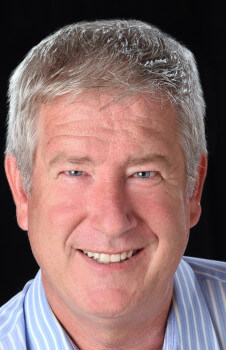
Enjoy wonderful music from some of BC's finest young musicians.
With special thanks to the following sponsors:


Enjoy wonderful music from some of BC's finest young musicians.
With special thanks to the following sponsors:


Enjoy wonderful music from some of BC's finest young musicians.
With special thanks to the following sponsors:



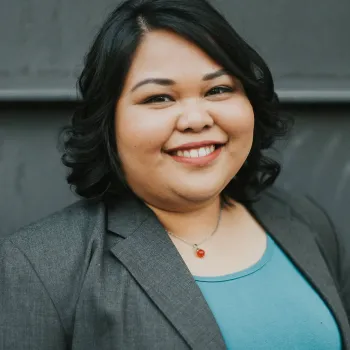
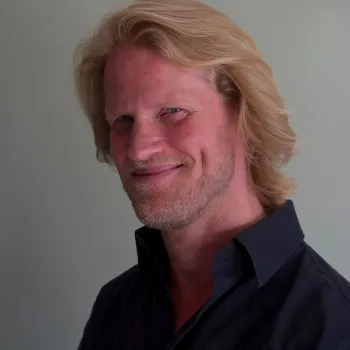
Richmond C
Christina O’Brien
Ukulele 101
Are you just getting started with ukulele in your classroom or studio or do you need some new and refreshing ideas? Then this session is for you! Learn tips, tricks and money-saving hacks to kick-start your program. “Ukulele for Children” author Christina O'Brien will walk you through some ways to get started and cover all of the basics such as tuning, instrument storage ideas, classroom management, easy warm-up activities, free online resources, and why she NEVER starts with C, F and G chords. There will be plenty of time for questions and discussion too! Tapestry Music will have some ukuleles on site so that you can play along as you learn.

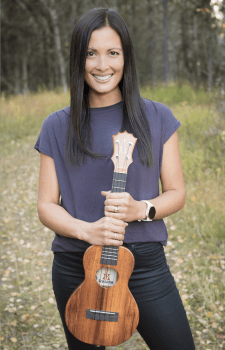
Richmond D
Tristan Clausen
Independent, Not Alone: Connecting Music Educators
Teaching music in an independent school can sometimes feel isolating, especially when it comes to collaboration and professional connection. This informal gathering is a chance for independent school music educators to connect, share experiences, and build community. Whether you’re looking to swap ideas, discuss challenges, or explore opportunities for inter-school collaboration, this is a space for open, supportive conversation. As your BCMEA Independent Schools Representative, I’d also love to hear directly from you—what’s working, what’s tough, and how we can better support one another. Drop in anytime—this is a come-and-go session with no formal agenda, just real talk with colleagues who understand your world
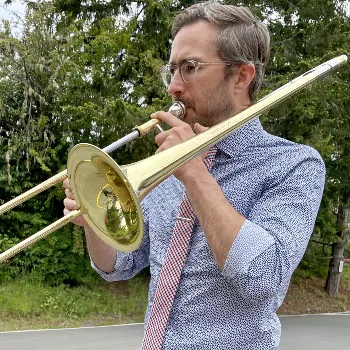
Richmond E
Mandart Chan
Equity, Diversity, Inclusion - Where Do I Start As a Teacher?
When we see the words Equity, Diversity, Inclusion, Anti-Racism, & Anti-Oppression, we tend to shy away from it as we don't know where to start, especially in the classroom. As educators, we don't want to make any mistakes when we start this work, but we can't ignore it or leave it to someone else. While I am not an expert in Anti-Oppression in Education, I can share with you what I have learned along the way, what worked for me in the classroom & workplace, and my lived experience as a person who belongs in multiple equity deserving communities.
Anti-Racism and Anti-Oppression work takes curiosity and courage - come join the conversation
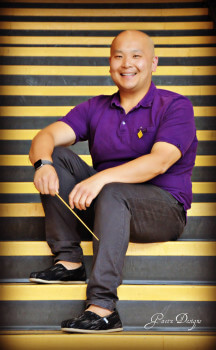
Richmond F
Janet Irvine, Cindy Romphf, & Christin Reardon MacLellan
Advocating for Music Education in Challenging Times
Music programs across BC are increasingly threatened by budget shortfalls, systemic underfunding, and misconceptions about their value in schools. This session will explore practical strategies for advocacy at both the local and provincial levels. Presenters will share tools to strengthen your district’s music specialist association, engage parents and community allies, and keep music visible in the public eye. Learn how the BCMEA can support teachers and local unions in resisting cuts, and how collective provincial action can amplify the message that music education matters. Join us for a collaborative session focused on empowerment, connection, and solidarity
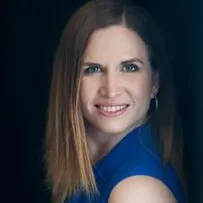
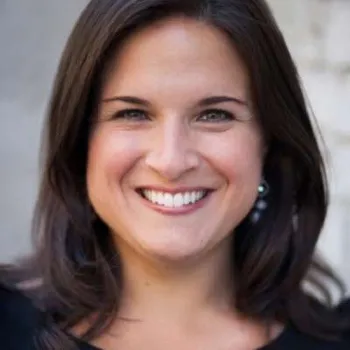
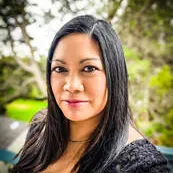
Richmond G
Melissa Goodchild
Why Are My Clarinet Players Always Playing Flat?
A clinic covering embouchure, tongue placement, tuning, and tone development for clarinet players. This clinic will include visual examples, exercises, and demonstrations of how to support your clarinet players in their tone development.
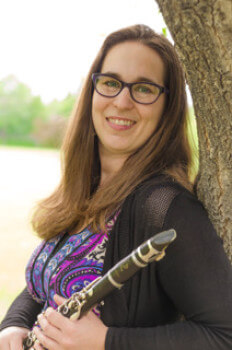
Steveston A
Geeta Das
Integrating Tech Into Innovating “Intro to Improv” Instruction
By introducing simple music techniques and technologies to your students, you’ll create a limitless supply of possibilities for individual and ensemble growth. This session will introduce some simple ways to implement and incorporate easy improv for beginners along with the use of simple (and free) technology that will inspire a whole new way to practice and will ensure the continued inspiration, excitement, and confidence of your students both at home and in the classroom.
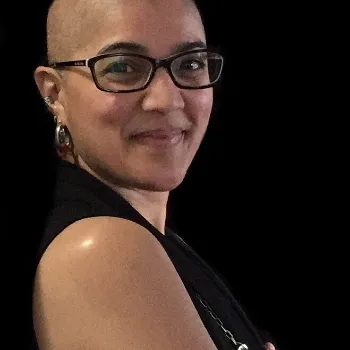
Steveston B
Elliot Polsky
Classroom Hand-Drumming with YouTube
This workshop will show educators a practical and useful way to educate and inspire students to learn how to play hand drums in the classroom. Along with the demonstration of basic playing techniques and learning a few basic rhythms, Elliot will show how to use YouTube as source material to incorporate into your program. Another feature of this clinic will demonstrate how to use language as a method to teach rhythm to your students. They will not only find it easier to learn basic techniques: it will inspire interest in hand drumming overall! Your students will be motivated to play and practice outside of the classroom!
This is a new approach, repeatable, and easy to use method for learning how language tied to rhythms can be applied to hand drumming, using popular music on YouTube both in and outside of the classroom.

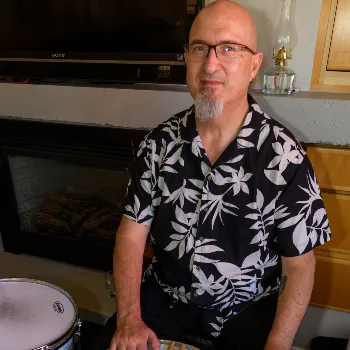
Steveston F
Dr Darren Hamilton
#BlackMusicMatters: Hip Hop and Social Justice in Canada
This session will explore how all music educators can incorporate music by Canadian Hip Hop artists in their classrooms using the free MusiCounts Learn/ADVANCE "#BlackMusicMatters: Hip Hop and Social Justice in Canada" resource. Interdisciplinary teaching tools, lesson plans and activities intended to engage grades 7-12 students will be discussed so educators can broaden their students' understanding of Canadian Hip Hop music and social justice themes. This workshop will include a lesson demonstration to model how educators can effectively use the resource in their classrooms. Music educators will leave this session feeling empower to include Hip Hop in their curriculum
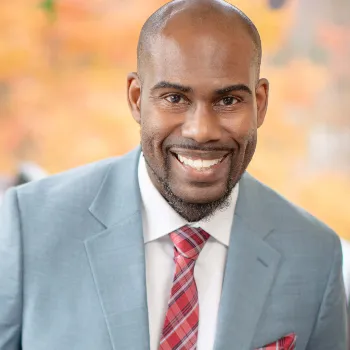
Cedarbridge
Daniel Hersog
Spotlight on Canadian Jazz Band Repertoire
Daniel Hersog will lead an ensemble through fresh repertoire from Canadian composers, focusing on charts written specifically for the high school level. This session highlights the quality and accessibility of Canadian writing, encouraging directors to explore the value of having students play homegrown music as part of their jazz band experience
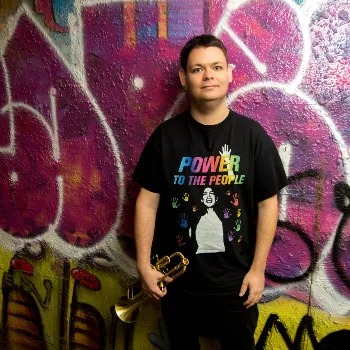
Elmbridge
Long & McQuade
Secondary Choral Reading Clinic
Great new repertoire in contemporary art, popular, and world music genres is featured in this session for changed voices. Selections are perfectly suited to mixed-voice choirs. Complimentary music pack available for the first 95 individuals.

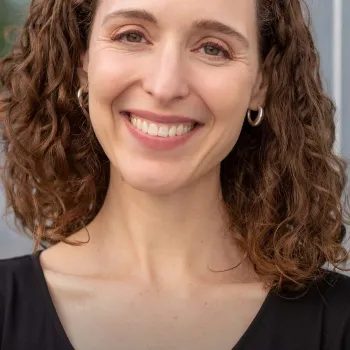

Richmond C
Christina O’Brien
Pop…Goes the Ukulele!
If you’ve been wanting to use some popular songs in your classes, then this is the workshop for you. During this fun and interactive session, participants will be introduced to simple arranging ideas while playing some easy ukulele pop songs that your students likely already know and love to sing! There are beginner friendly single notes, modified chord options, and even some fun riffs to play. Join "Ukulele for Children" author Christina O'Brien as she walks you through some classroom tested pop arrangements that can be enjoyed by your middle school students but also have simplified parts for your primary students. Learn some catchy songs and also leave with some great strategies to create your own arrangements. Tapestry Music will have some ukuleles on site for participants to use, or feel free to bring your own.


Richmond E
Mandart Chan
Beyond the Notes: Embedding Equity in Repertoire, Assessment, and Everyday Practice
Creating inclusive music classrooms means rethinking both what we teach and how we assess. This workshop explores equity in two key areas: repertoire and assessment. Using an equity scan of the MusicFest Canada syllabus as a case study, we’ll examine how to select diverse, culturally responsive music that reflects student identities. We’ll also look at how traditional assessment practices can unintentionally reinforce inequity—and how to adapt them to be more fair, inclusive, and student-centred. Participants will leave with practical tools, reflective strategies, and resources to embed equity into everyday music teaching

Richmond G
Melissa Goodchild
Relational Leadership in Large Ensembles
Relational leadership focuses on how individuals co-construct leadership through relationships. In this lecture/workshop I will share what relational leadership is, how relational coordination can support better learning outcomes, and how to apply relational coordination in large ensemble settings and encourage it outside the classroom.

Cedarbridge
Michael Beauclerc
Cuban Percussion for Outsiders
Percussionist Michael Beauclerc will break down and demonstrate popular Cuban rhythms and styles in a simple and easy-to-replicate method. Audience participation is encouraged. (Bolero, Cha, Mambo, Salsa, and more)
Sponsored by: Yamaha Canada Music, Tapestry Music, Remo Drumheads, Vic Firth Drumsticks, Mad Practice Pads

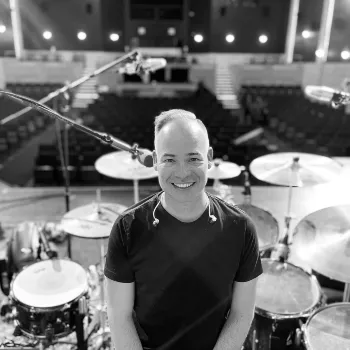
Elmbridge
Long & McQuade
Elementary Choral Reading Clinic
Capture your singers’ hearts with newly-released concert, popular, and traditional music written for 2-part and 3-part equal voices. Complimentary music pack available for the first 95 individuals.



Richmond A+B
Alan Hopkins
Choices, Relationships, & Expression: A Low to No Tech Approach to Teaching Through Collaborative Music Composition
Join Alan Hopkins in exploring music teaching built around the expectation that students work on learning to see themselves as, collaborative composers exercising creative agency together. See how this is well supported by the expectation that students practice pursuing the overarching social purpose that they come together as risk takers to explore possibilities, sharing and developing knowledge together, while needing to share responsibility for success together, to get ready to share.
Look at ways that exploring possible musical choices together in varied patterns and relationships, not only leads to the development of creative expressive potential in students, but also supports creating the social necessity for students to explore and expand their theoretical understanding of music together, as they end up in conversation about all of this together. As part of all of this, come and talk with Alan about first principles that can be seem to underly harmony, counterpoint, and structure that, if framed as imprecise frameworks (or heuristics) of exercising ranges of musical judgement, Ken further support students deepening their theoretical and practical understanding of music, as they compose together

Richmond C
Annie Shum
Behind the Scenes: How to Plan and Produce a Successful Elementary Concert
This workshop will guide you through the complete process of organizing a live concert —from the first idea to the final encore. Participants will be exploring:
- the nuts and bolts of planning a concert, such as timing, venue, and rehearsal schedule;
- repertoire ideas;
- collaborations with parents, colleagues, and the community;
- ways to make rehearsals fun;
- and so much more!
All of us come with a wealth of experience and knowledge, so come prepared to share your wisdom!
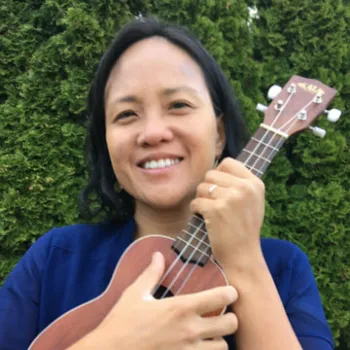
Richmond D
Michael Meroniuk
The Intersection of Music & Technology
**BRING A COMPUTER**-The purpose of this clinic is to demystify recording technology and provide current and aspiring music educators with the skills to engage, create and develop confidence in this discipline. Attendees will learn the basics of how to record, create beats, and create original music using a digital audio workstation. (DAW)
Sample lessons templates will also be distributed ensuring that attendees have resources to utilize in their classroom and use to review material.


Richmond F
Elizabeth Forrest
ReconciliACTION: The Story of Eskekwx ta S’pakwus and the Path towards Musical Collaboration, Healing, and Respect
This clinic will focus upon the creation of “Eskekxw ta S’pakwus," or “The Gathering of Eagles” and how this unique collaboration helped move a step forward toward truth and reconciliation through music. “Eskekxw ta S’pakwus” is a song received from the ancestors by Squamish Elder Bob Baker and re-imagined for Symphonic Band by Robert Buckley. The West Vancouver Youth Band (Douglas Macaulay), aware and frustrated by the lack of Indigenous musical representation in the wind band repertoire, decided to change that with this collaboration. The premiere, which took place at the Chief Joe Mathias Centre on the traditional, ancestral, and unceded territory of the Squamish Nation, presented a first of its kind wind band performance; and led to the creation of two additional works that make up The Squamish Symphony, all premiered by the WVYB and Baker’s Eagle Song Drummers and Dancers. Chief Ian Campbell of the Squamish Nation declared these pieces as works of “reconcili-action”, as these pieces were a shared journey of mutual respect, honouring the Squamish Nation traditions and legacy.

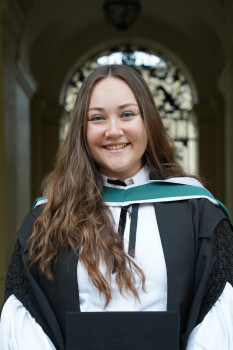
Richmond G
Brenda Sylvia Khoo, Nancy Quan, Tim Sars, & Erika Chow
Bridging Music Programs through Social Emotional Connection
Join presenters from Burnett Secondary and a couple of Richmond BC elementary schools as we share how we have created a music mentorship program to strengthen the social and emotional connections of preteens and teens, especially the students transitioning to high school.
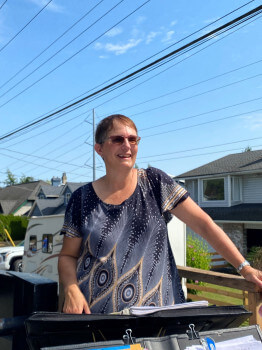
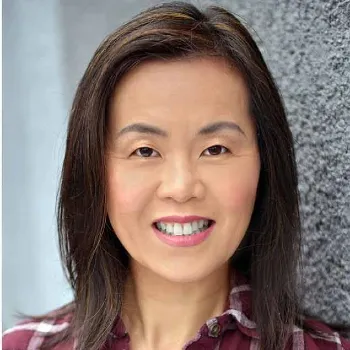
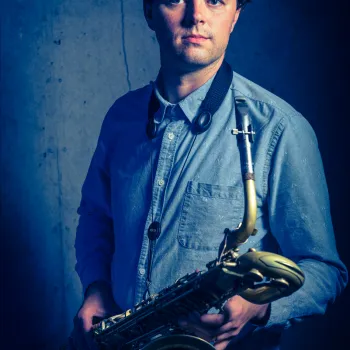
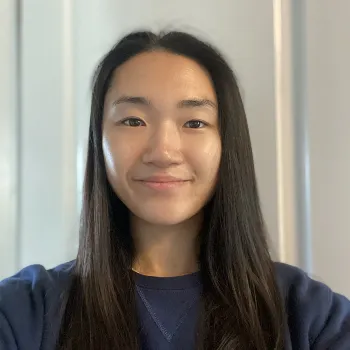
Steveston A
Ryan Oliver
Time, Tone and Technique: Building Better Saxophone Sections in School Bands
Join Juno-nominated saxophonist Ryan Oliver as he presents numerous foundational techniques that will improve the sound and cohesion of your saxophone section in any ensemble setting. Topics will include tone and technique development, articulation, getting off on the right foot with a good setup and embouchure, practice routines, trouble shooter Q and A and more. Less squawks, more chops
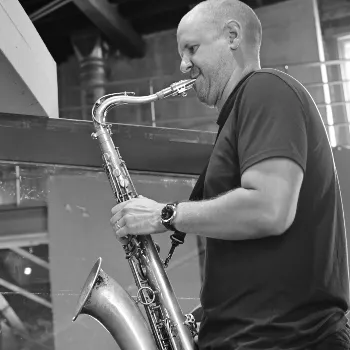
Steveston F
Nicholas Renaud
Nurturing Healthy Voices: A Holistic Approach for K-12 Educators
We will explore transformative practices of teaching healthy singing habits, grounded in body-mapping and voice science. This clinic, crafted for choir/singing teachers of any level, delves into proven strategies developed inspired by voice therapy techniques designed by the world’s leading speech-language pathologists, adapted for the choral classroom. Together, we'll uncover how to guide students towards sustainable vocal health and expressive freedom.
In our interactive session, participants will learn to identify and address common vocal challenges through a blend of therapeutic exercises, voice therapy-inspired vocal warm-ups and scientifically-backed techniques for teaching vocalizing. We'll engage with practical, hands-on activities that you can seamlessly integrate into your music classes, enhancing both vocal longevity and enjoyment for your students.
Participants will leave with tools that foster a deeper understanding of vocal mechanics and health. Let’s help our students not just sing, but thrive with voices that are as resilient as they are melodious
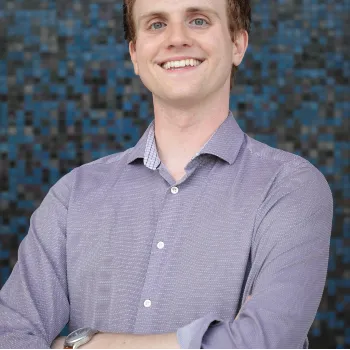
Cedarbridge
Michael Beauclerc
Essential Styles for Drum Set
“How do I make this Funky?” “Why doesn’t this swing?”
Touring Drummer Michael Beauclerc will break down and demonstrate popular styles on the drumset in a simple and easy-to-replicate method.
Sponsored by: Yamaha Canada Music, Tapestry Music, Remo Drumheads, Vic Firth Drumsticks, Mad Practice Pads


Elmbridge
Gena Norbury
Music Moves Mi: The Intersection of Solfa, Rhythm, and Movement in the Upper Elementary Music Classroom
Movement and manipulatives work together to create more meaningful musical experiences for students. Delegates will be engaged in brain to body connections through singing and movement while exploring inner hearing and complex musical competencies. Come explore how to incorporate these engagement tools to build beat capacity, active listening skills, musical literacy, singing, and moving through the use of balls, cups. body percussion, non-pitched percussion instruments, and lummi sticks. Fundamental concepts from the elementary grades that will be covered are: texture, tonic & dominant, recognizing musical patterns in music, canon, and multiple time signature changes. A sample Kodály-inspired lesson plan will be discussed to help teachers plan for their own classes. All materials and ideas will be shared with the delegates who attend.
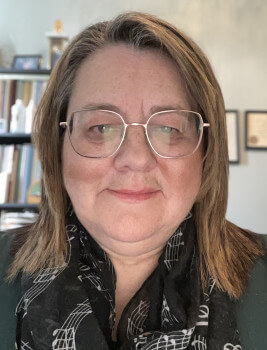
Richmond A+B
Alan Hopkins
More Music, Less Paperwork: The How To’s Around Spreadsheet Programming for Music Reporting and Teaching
Most of us have lived life quite comfortably without ever having gone to say cell A1 of an Excel or Google Sheets spreadsheet and entered, =3+4=9, and, to our surprise, found that the spreadsheet is smart enough to return return the result FALSE. After all, what does this really have to do with Music? We could end up lost among equals signs, commas, colons, if statements, and layers upon layers of parentheses, or rounded brackets, fixed, or unfixed references, dropdown menus, etc, and get distracted from Music. However, if the spreadsheet is smart enough to know that the above mathematical expression is FALSE, maybe it could do our reporting and paperwork mostly for us?
In this workshop, join Alan Hopkins in learning how to use spreadsheet code in Excel and in Google Sheets to drastically reduce the time that we as teachers spend on reporting or generating organizational paperwork. See how thinking through our data generation processes can help us design ways for spreadsheets to automate a lot of text generation work that, throughout our teaching careers, easily takes up months or years of our lives. Learn the story of how Alan, as a result of embracing spreadsheet programming originally out of his interest in Dungeons & Dragons, as central to his work as a
Music and ELL teacher, has enabled him to invest extra extraordinary time in more meaningful, purpose, driven relationships with students, in pursuit of their musical passions, in class and beyond, in extracurricular clubs that he simply did not have before.
Participants are recommended to have downloaded and already logged into both Microsoft Excel and Google Sheets and, if possible, have either a tablet or iPad and a laptop, with those apps open, ready to go. The apps could be loaded ready to go on phones too. In Gmail, at the top right of the browser or app, there is often a 9 dot square (or waffle) that, if clicked on, leads to a menu that we can scroll down within, to find the Google Sheets app. And, once in the session, say hello to your partner so that you are ready to talk and practice spreadsheet code together

Richmond C
Rossi Tzonkov
Ukulele Unleashed! Making Music Literacy Fun
This workshop will take you on a practical journey through the steps required to implement a comprehensive ukulele program in your school’s music curriculum.
Whether you’re just getting started or looking to enrich your current approach, this session will equip you with tools and strategies to make ukulele teaching accessible, effective, and fun!

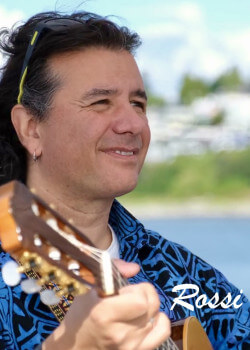
Richmond D
Drs Anita Prest, Dr. Hector Vazquez-Cordoba, Dr. Steven Capaldo, and Dr. Scott Goble
Process or Product?: Wrestling with the First People’s Principles of Learning in K-12 Music Education
Have you been struggling with embedding the First Peoples Principles of Learning (FPPL) in your music classes? In this session, we will review the FPPL and share stories from teachers who have transformed their classes by embracing and enacting these principles. Our time together is intended to provide an opportunity for you to safely share your own fears, challenges, and successes with others as we all work to make our classes spaces for respectful and ethical engagement.
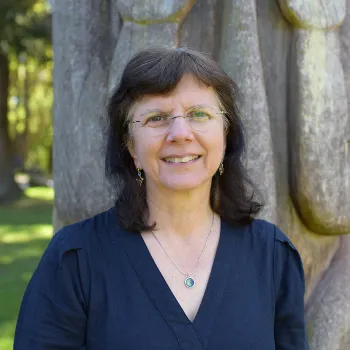
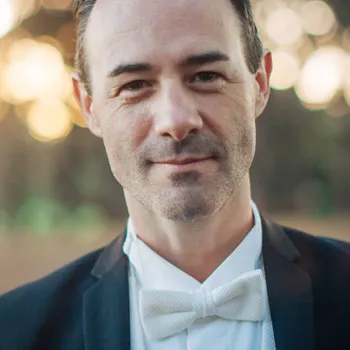
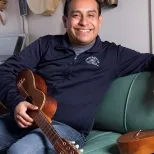
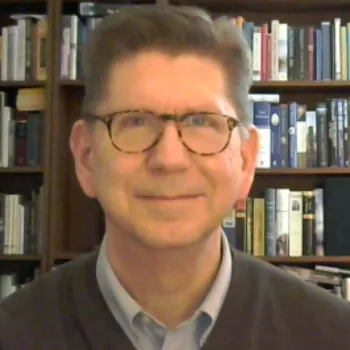
Richmond E
Mandart Chan
Assessments Through an Equity Lens - It Can Be Done!
Educators engaging in Equity, Diversity, and Inclusion (EDI) work is critical in addressing societal oppression and fostering a more just, safe, and affirming environment. EDI work involves a multifaceted approach, encompassing intricate details, recognizing power dynamics, embracing discomfort, and challenging established systems. The EDI journey of an educator is ongoing, marked by a commitment to learning, action, and self-reflection. Valuable resources and actionable steps, such as developing an EDI plan, fostering self-reflection, initiating equity scans, establishing diversity clubs, and advocating for inclusive hiring practices, can empower educators in advancing EDI goals within classrooms, schools, school district, and the greater community. Essential texts and online platforms further aid in understanding and implementing EDI practices for a more equitable classroom

Richmond F
Dr Mark Tse
How to Stop Moving Awkwardly: Authentic Movement Informed by Martial Arts, Sports, and Dance
Participants will learn how to move their bodies in more efficient and aesthetically pleasing ways, as informed by martial arts, sports, and dance. They will actively focus on each body part from the feet to the head, experimenting with the pros and cons of different ways of moving the body. By the end of the workshop, participants will be armed with different options to move their particular bodies in authentic and natural ways while on the podium
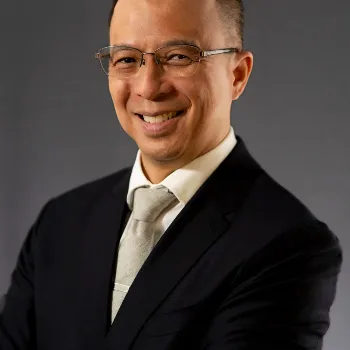
Richmond G
Brenda Slyvia Khoo, Nancy Quan, Tim Sars, & Erika Chow
Bridging Music Programs Through Social Emotional Connection
Join presenters from Burnett Secondary and a couple of Richmond BC elementary schools as we share how we have created a music mentorship program to strengthen the social and emotional connections of preteens and teens, especially the students transitioning to high school




Steveston A
Ryan Oliver
Improvisation Strategies for Young Musicians: Getting Beyond the Blues Scale
Join Juno-nominated saxophonist Ryan Oliver as he presents numerous strategies to getting your jazz improvisors to forge their own path with the tools available to them, promoting individuality and creativity. Learn how to help your students develop more advanced improvisational language. Topics will include various pentatonic scale options, an introduction to beginner use of upper structures in jazz harmony, and approaches to getting your students to solo with more harmonic sophistication and confidence. (Hint: It's easier than you think!)

Steveston C
Alanna Pearce
She Shreds: Empowering Young Women in the Music Classroom
This clinic will focus on how teachers can encourage and empower young women in the music classroom. Through this empowerment, teachers are able to create classroom communities where young women can break through gender norms that have traditionally kept many from discovering their full potential in music. The goal of this clinic is to engage in dialogue as educators and to take away tangible strategies for girls’ engagement that can be transferrable to supporting any group of students in your school community.
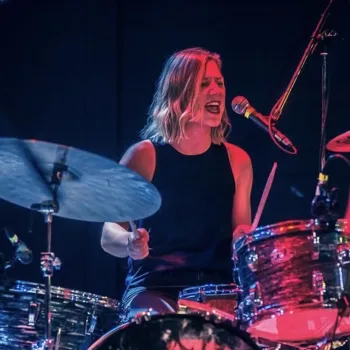
Steveston D
Dr Darren Hamilton
So You Want to Teach Your Choir Gospel Music?
Gospel music has its roots in African American culture and history. As an aural tradition, gospel music’s performance practices and musical characteristics are closely related to blues and jazz. As a form of cultural music, gospel music has played a significant role in the development of many North American popular music genres (i.e., R&B, soul and funk), although historically, often receives little credit for its contributions. Although gospel music has been slowly making its way into some American and Canadian postsecondary music programs, very few music educators are equipped with the knowledge and skills to teach gospel music in their elementary or secondary classes. This workshop will provide practical strategies for engaging students and choristers in rote learning, aural musicianship development, and gospel music performance practices. Stylistic nuances will be discussed and explored. Considerations for appropriate repertoire selection and responding to objections to gospel music will also be discussed.

Steveston F
David Eccles
Make Your Strings Method Book Work for Your Situation
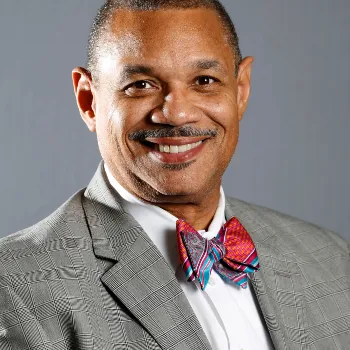
Elmbridge
Dale Hudson
The Anatomy of Singing and Conducting
This workshop offers extensive knowledge on the respiratory and musculoskeletal systems, and caters to improving breath work and reducing tension in singers and conductors alike. Attendants will walk away with new clinical techniques, a deeper understanding of how conducting influences the posture and performance of choristers, and a professionally made, time-efficient warm up and stretch routine specifically for vocalists.
Richmond A+B
Curtis Mathewson
“What Can We Find in the Garden?” Exploring the Outdoors with Orff
Participants will sing, move, and play while discovering the very interesting entwined lives of plants in the garden. Leave with a unit that you can use to move your students from inside the classroom to exploring the school gardens and fields.
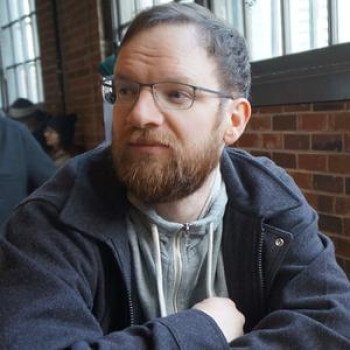
Richmond D
Clarice Scop
Fun with Fiddle: Embracing Folk Styles in the Strings Classroom
In this session, we will tour fiddle music from around the world, be introduced to playing in the fiddle style(s), explore the benefits to learning folk styles in the Strings classroom, and develop practical methods for incorporating these styles into your lessons. We will learn to play some simple fiddle tunes together, building our ensemble as we go by adding more layers to the sound. Participants will learn about accessible fiddle music for beginner-level ensembles as well as advanced pieces for established Strings groups. Please bring your instrument and join in the fun! Open to all levels.
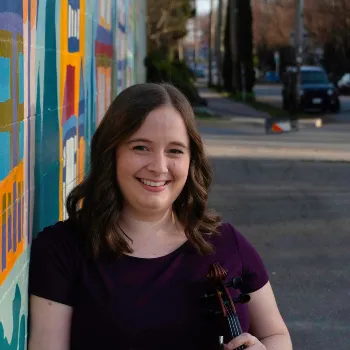
Richmond E
Kevin Hamlin
Keynote Follow Up: Q&A Session


Richmond F
Sam McNally
French Horn 101: Unraveling the Mysteries of the Orchestra’s “Hardest” Instrument
Discover what sets the Horn apart –its history, technique, and pedagogy– and learn how to best support students on their quest to master this notoriously tricky instrument.
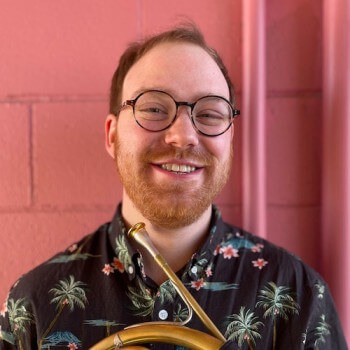
Repeated Session
Richmond G
Melissa Goodchild
Why Are My Clarinet Players Always Flat?
A clinic covering embouchure, tongue placement, tuning, and tone development for clarinet players. This clinic will include visual examples, exercises, and demonstrations of how to support your clarinet players in their tone development.

Steveston A
Nick LaRiviere
Low Brass Master Class
Join trombonist Nick La Riviere for a master class focused on low brass instruments. We'll work on technique such as double tonguing, range expansion, warm ups, and also dive in to improvisation and playing with a brassy, fiery sound. The techniques we go over at this clinic should help inspire low brass players to expand their sound. This is an interactive clinic, so please bring your horn!
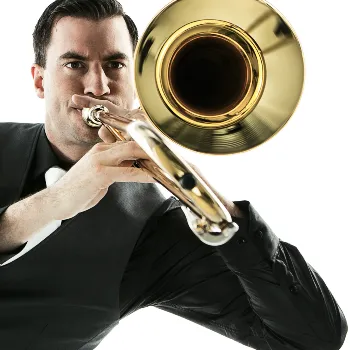
Steveston B
Christine Guter
Latin Styles in Vocal Jazz
Broaden your perspective and repertoire for vocal jazz programming! This session will discuss common Latin styles within a vocal jazz ensemble setting. We will cover bossa nova, samba, afro-cuban, and more. Learn specific grooves and musical approaches. References, resources, and suggested rep lists will be shared. Fun and informative for everyone!
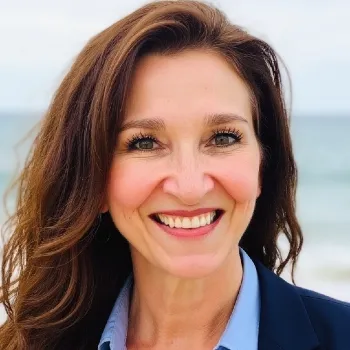
Repeated Session
Steveston C
Alanna Pearce
She Shreds: Empowering Young Women in the Music Classroom
This clinic will focus on how teachers can encourage and empower young women in the music classroom. Through this empowerment, teachers are able to create classroom communities where young women can break through gender norms that have traditionally kept many from discovering their full potential in music. The goal of this clinic is to engage in dialogue as educators and to take away tangible strategies for girls’ engagement that can be transferrable to supporting any group of students in your school community.

Steveston D
Dr Darren Hamilton
Perceptions and Benefits of Curricular Gospel Choir Participation Amongst Post-Secondary Students: A Preliminary Exploration from a Canadian Perspective (Research Presentation)
The existence of curricular gospel music programs at Canadian public postsecondary institutions is extremely limited. Furthermore, gospel music, like many other forms of Black music, has historically been deemed as not worthy of study in the academy (Boyer & Moore, 2010; Burke, 2021; Cox, 1996). The purpose of this study was to examine the perceptions and benefits of curricular gospel choirs amongst students who have been participating in such courses at the only three Canadian public postsecondary institutions currently offering them: York University, Humber College and the University of Toronto. This research presentation will present initial findings from this study, which may inform Canadian and global postsecondary institutions who are considering the inclusion of gospel music studies to help diversify their music curricula and better equip future elementary and secondary music educators to teach gospel music in their classrooms.

Steveston F
Nicholas Renaud
Cultivating Caring Music Classrooms: EDID Strategies for Music Educators
Join this interactive workshop to explore Equity, Diversity, Inclusion, and Decolonization in music education. Engage in community-driven discussions and activities to integrate EDID principles into your teaching practices, enhancing inclusivity and cultural responsiveness.
We'll discuss Gender Theory's impact on understanding diverse student identities and influencing our instruction. We’ll explore how incorporating Indigenous Knowledges into our teaching can foster deeper cultural respect, reciprocity and connection. We’ll explore practical strategies for adopting Universal Design for Learning (UDL), aimed at making music education accessible and engaging for all students.
This workshop is a collaborative effort to empower music educators to create environments where every student feels valued and included. The goal is to cultivate a safe space where participants will be invited to join the discussion, sharing their own pedagogical practices that work to advance EDID as well as asking questions and learning from colleagues new ways to forward inclusivity in their classrooms.

Cedarbridge
Marizza Mislang
Heart-centred Rehearsal Strategies for Treble Voices
Rooted in her work with high school choirs at Little Flower Academy, Marizza Mislang shares rehearsal strategies that honour both the emotional and musical development of the high school treble voice. This session will focus on a practical but heart-centered approach to the choral rehearsal that encourages sopranos and altos to build confidence in themselves, embrace vulnerability in their performance, and experience the joy of singing together—all while nurturing a warm, unified tone within the ensemble.
Educators will leave with practical tools and heart-centered strategies for creating meaningful rehearsals—approaches that support a strong vocal foundation while encouraging each singer to grow in confidence, develop a deeper sense of self, and feel more connected to the ensemble around them. Drawing on over 20 years of experience, this session offers rehearsal techniques, vocal exercises, and reflective teaching practices that bring out the natural beauty of the treble voice
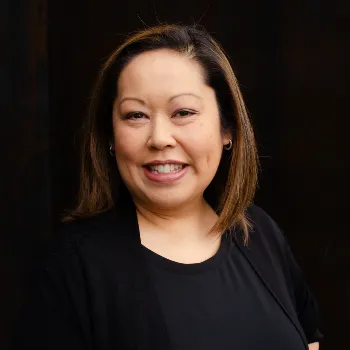
Elmbridge
Dr Erik Peregrine
Reading Session: Choral Music by Trans+ Composers
Drawing from the Choral Music by Trans+ Composers Database, this reading session will introduce participants to accessible choral works for unison, 2vv, SATB, SSA, and SATB voicings appropriate for a variety of settings written by trans, nonbinary, and gender-expansive composers. Participants will come away with an overview of the database project, specific repertoire by trans+ composers to incorporate into their programming, a greater appreciation for the variety of choral music written by gender-diverse composers, and resources for further exploration.

